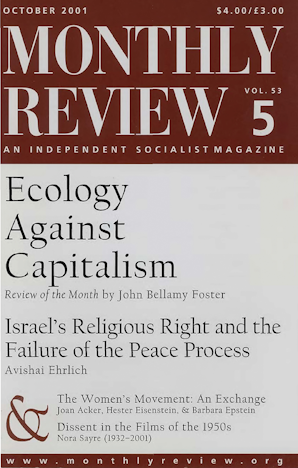Also in this issue
- What Happened to the Women's Movement? An Exchange: Different Strategies are Necessary Now
- What Happened to the Women's Movement? An Exchange: The Broader Picture
- What Happened to the Women's Movement? An Exchange: Response to Acker and Eisenstein
- Ecology Against Capitalism
- Unglaring Exceptions: Dissent in the Films of the 1950s
- Questioning Globalization
Article by John J. Simon
- Sweezy v. New Hampshire: The Radicalism of Principle
- A Portrait of Gil Green
- Pete Seeger, Socialist Songster: Introduction
- Aimé Fernand Césaire (1913-2008): The Clarity of Struggle
- The Death and Life of Che
- Rebel in the House: The Life and Times of Vito Marcantonio
- Albert Einstein, Radical: A Political Profile
- The Achievement of Malcolm X
- Leo Huberman: Radical Agitator, Socialist Teacher
- 'Unacknowledged Legislators': Poets Protest the War (Introduction)

